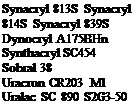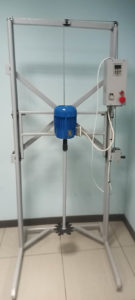DWI can manufacture in Europe has been dominated by the use of white basecoat and non-varnish ink. The short cycle pin ovens often installed operate at air temperatures well in excess of 300°C, in order to achieve peak metal temperatures of 170-180°C in the 4-6 seconds total dwell time for the can in the oven. Medium cycle ovens with about 40 seconds dwell time are more common now. With these very high air temperatures, cans would be exposed to very high overbake conditions during line stoppages. The possibility of further overbake for the white basecoat exists similarly at the print oven and at the oven for the bake of the inside spray, which in the case of steel cans would be two passes.
Initially both acrylic and polyester systems were evaluated to withstand these very high overbake conditions. As acrylic systems were found to show superior adhesion characteristics under severe pasteurisation conditions, they came to dominate the market for this application.
Major suppliers of two piece external coatings would normally be self sufficient in resin manufacture and successful resins might involve the co-polymerisation of typically styrene or methyl methacrylate, acrylic acid and ethyl acrylate. However, successful coatings can be manufactured from commercially available resins:
|
1. Ті-Pure R-900 |
30.0 |
|
2. Uracron CR 203M1 |
15.0 |
|
3. Uracron CR 203M1 |
13.0 |
|
4. Cerefak 178 |
5.0 |
|
5. 50% Lanolin solution |
2.0 |
|
6. LTH resin solution (50%) |
5.0 |
|
7. Butyl glycol |
7.0 |
|
8. Epikote 836 |
5.0 |
|
9. Cymel 303 |
7.5 |
|
10. Butyl diglycol |
5.0 |
|
11. Nacure 155 |
0.5 |
|
12. Solvesso 150 |
5.0 |
|
Total |
100.00 |
Viscosity: 50-55" F4 @ 25°C
Solids: 60 ± 2.0%
A Cowles dispersion process (items 1 and 2) is normally chosen for two piece can coatings manufacture, with batch sizes of 10 tonnes minimum. This is considered the most efficient process for this high volume/low margin product.
As discussed above, coatings can be non-varnish, in such cases lubricant selection is most important to ensure good printability and mobility. Normally, a combination of lubricants are chosen to give both good rapid initial mobility and good slip retention with overbake. For good printability, the surface tension of the coating after processing through the coater oven should be a minimum of 32 dynes/cm2.
In considering the solvent balance, the combination of butyl glycol and Solvesso 150 gives a good balance of machine stability, economy and solid content of the coating. The slow evaporating butyl diglycol ensures good flow out but it is not too slow, that it cannot be driven out of the film during the very short coater bake. It is just about the slowest solvent which can be used, Solvesso 200, for example, will remain in the coating and give an initially tacky film.
LTH Resin (Ex Huls) and Epikote 836 (Ex Shell) combine to promote adhesion and Cymel 303 (Ex Dyno Cyanamid) gives rapid crosslinking and the highest possible sold content in the coating. Nacure 155 catalyst is chosen to ensure ‘good’ cure speed with optimum crosslinking and adhesion.
The supply viscosity of 55-55" F4 @ 25°C would normally be considered low for a rollercoating white basecoat. This has, however, been found to give best application and film weight control for the mandrel coating process.
Another formulation for a white basecoat may be:
|
FORMULATION 4-22: WHITE BASECOAT FOR DWI 2 PIECE CANS
|
Viscosity : approx 400m PaS @ 25°C
nvc: 63.7%
Vehicle solids content: 43.3%
Pigment/binder ration: 1.2:1
Acrylic/melamine/epoxy ratios: 80:20:5
Bake: 180-190°C at peak metal temperature
With the introduction of the 206 spin necking process on steel cans, it was found that the necessary flexibility could not be obtained with acrylic systems and polyesters and acrylic modified polyesters gained success. To achieve successful spin necking, properties of flexibility, hardness, adhesion and abrasion resistance must be achieved.
FORMULATION 4-23:
ACRYLIC MODIFIED POLYESTER WHITE BASECOAT
|
1. Ті-Pure R900 |
30.0 |
|
2. Uralac SC890 S2G3-50 |
20.0 |
|
3. Uralac SC890 S2G3-50 |
22.0 |
|
4. Cerafak 178 |
5.0 |
|
5. 50% Lanolin solution |
2.0 |
|
6. Uramex BF 892B |
7.5 |
|
7. 50% Epikote 1001 solution |
7.0 |
|
8. Desmodur BL 3175 |
2.5 |
|
9. Solvesso 200 |
2.0 |
|
10. Butyl diglycolol acetate |
2.0 |
|
Total |
100.0 |
Properties
Viscosity: 50-55" F4 @ 25°C
Solids: 58.0 ± 2.0%
Items 1 and 2 are dispersed by a Cowles mixer. Uralac SC890 S2G3-50 (Ex DSM) is an acrylic modified saturated polyester resin and it is recommended to be cured with between 90/10 and 80/20 (solid/solid) resin/melamines. In this example it is not used with melamines, but a benzoguanamine at a ratio of 89/11. Uramex MF821 (n-butylated melamine) gives good overall properties of hardness, printability and no loss of adhesion on necked ends in 80°C pasteurisation conditions. To obtain an extremely hard surface a highly reactive melamine, such as Uramex MF822 В is recommended. It is claimed (DSM) that catalysts, such as Nacure 5225, can be used with this resin without loss of properties. The use of BF 892B benzoguanamine resin give improved flexibility and the Epikote 1001 and Desmodur BL 3175 isocyanate add further to the flexibility, hardness and adhesion of the system. Catalysts are not normally used as this detracts from flexibility. This does, however, mean that higher metal temperatures of 190-200°C are normally needed with the use of medium cycle 20 second bake ovens. These longer bake cycles also mean that slower evaporating solvents can also be used for improved flow out.
Water based coatings are now being introduced and a limited use of overprint varnish on aluminium cans. Acrylic and polyester technologies continue to dominate this market sector.
(xi)
 |
 |
 25 августа, 2015
25 августа, 2015  Malyar
Malyar  Опубликовано в рубрике
Опубликовано в рубрике 